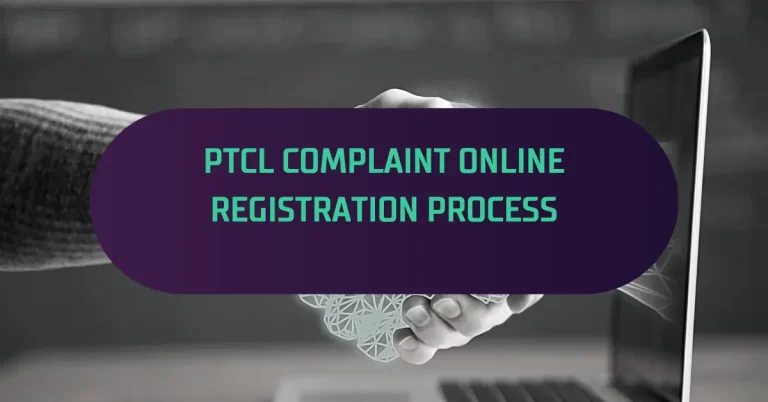Register Private Candidate For O Level In Pakistan A Complete Guide

O Level qualifications, short for Ordinary Level, are internationally recognized secondary school qualifications offered by examination boards such as Cambridge International Examinations (CIE) and Edexcel. In Pakistan, O Levels are highly regarded as they provide students with a solid foundation in various subjects, often serving as a stepping stone toward higher education, both locally and abroad. These qualifications are equivalent to the Secondary School Certificate (SSC) in Pakistan but are often preferred for their international recognition and rigorous academic standards.
For many students, enrolling in a school that offers O Level courses is the traditional route. However, there is an alternative option: register private candidate for o level in Pakistan. This option allows students who, for various reasons, are not enrolled in a formal school setting to still pursue their O Level qualifications.
There are several reasons why someone might choose to register as a private candidate. For instance, students who are homeschooled, have scheduling conflicts, or prefer to study independently may find this route more suitable. Additionally, those who have relocated or faced interruptions in their education can use the private candidate option to continue their academic journey without needing to re-enroll in a school.
By opting to register private candidate for o level in Pakistan, students gain the flexibility to manage their studies according to their own pace and preferences, making it an attractive option for those who seek greater control over their educational experience.
2. Eligibility Criteria

Before you embark on the journey to register as a private candidate for O Levels in Pakistan, it’s essential to understand the eligibility criteria. Knowing whether you meet these requirements will help you avoid any potential setbacks during the registration process.
Age Requirements
Generally, there is no strict age limit for registering as a private candidate for O Levels. However, most candidates fall between the ages of 14 and 16, which aligns with the typical age range for secondary education. That said, mature students or those who have taken breaks from formal education can also register, as the O Level exams are open to candidates of all ages.
Educational Background or Prerequisites
While there are no formal prerequisites for registering as a private candidate, having a strong educational foundation is crucial. Most candidates who opt for O Levels have completed basic secondary education, such as Class 8 or equivalent. A solid understanding of the subjects you wish to pursue at the O Level is highly recommended, as the exams are academically rigorous.
If you have previously studied under a different educational system (e.g., Matriculation in Pakistan), it’s advisable to review the O Level syllabus for your chosen subjects to ensure you’re adequately prepared. Some subjects may require prior knowledge, and brushing up on these areas can be beneficial.
Who Qualifies as a Private Candidate?
A private candidate is anyone who is not enrolled in a school that is registered with the examination board offering the O Level exams. This includes:
- Homeschooled Students: Those who receive their education outside the traditional school system, often through a structured curriculum provided by parents or private tutors.
- Independent Learners: Students who prefer self-study and manage their own educational progress without attending a formal school.
- Students Facing Educational Interruptions: Individuals who have had to leave school due to relocation, personal circumstances, or other reasons but still wish to complete their O Levels.
- Mature Students: Adults who did not have the opportunity to complete their O Levels during the typical schooling years and now wish to do so.
3. Benefits to Register Private Candidate For O Level In Pakistan
Choosing to register as a private candidate for O Levels in Pakistan comes with several advantages, especially for students who prefer flexibility and autonomy in their educational journey. Here’s a closer look at the key benefits:

Flexibility in Study Schedule
One of the most significant benefits of being a private candidate is the flexibility it offers in terms of your study schedule. Unlike traditional school settings, where you must adhere to a fixed timetable, registering as a private candidate allows you to set your own pace. This flexibility is particularly beneficial if you have other commitments, such as work or family responsibilities, or if you simply learn better outside the conventional classroom environment. You can allocate more time to subjects you find challenging, take breaks when necessary, and design a study plan that suits your unique learning style.
Independence in Choosing Subjects
As a private candidate, you have the freedom to choose the subjects that align with your interests and career goals. You’re not bound by the subject combinations typically offered in schools, which often require students to take certain mandatory subjects. Instead, you can focus on the subjects that matter most to you, whether they’re science, arts, or humanities. This independence enables you to tailor your O Level qualifications to better reflect your aspirations, potentially giving you a competitive edge when applying for higher education or entering the workforce.
Cost Considerations Compared to Formal School Enrollment
Registering as a private candidate can also be more cost-effective than enrolling in a formal school. Traditional schools often charge fees that cover not only tuition but also additional costs for facilities, extracurricular activities, and administrative expenses. As a private candidate, you can avoid these extra costs, paying only for the registration, examination fees, and any supplementary study materials or tutoring you may choose to invest in. This can make the pursuit of O Level qualifications more affordable, especially for students from families with limited financial resources.
4. Required Documents
When registering as a private candidate for O Levels in Pakistan, gathering the necessary documents is a crucial step in ensuring a smooth registration process. Having all your paperwork in order not only saves time but also reduces the risk of delays or complications. Below is a list of the essential documents you will need and the importance of ensuring they are up-to-date and accurate.
List of Necessary Documents
- Previous Educational Certificates
- Academic Transcripts or Certificates: These may include your latest school report, Class 8 completion certificate, or any other relevant academic records. These documents serve as proof of your prior education and may be required by the examination board during the registration process.
- National Identity Card or B-Form
- National Identity Card (NIC) or B-Form (for underage candidates): A valid NIC or B-Form is required to verify your identity. This ensures that the information on your registration form matches official records. Make sure the ID card is valid and the details, such as your name and date of birth, are accurate.
- Photographs
- Recent Passport-Sized Photographs: Typically, you will need to submit two to four passport-sized photographs. These photos must be recent, with a plain background, and should meet the specific size requirements set by the examination board. The photographs are used for your admission slip and other official documents.
- Proof of Address
- Utility Bills or Other Documents: Some examination boards may ask for proof of your residential address. This can be provided through utility bills, lease agreements, or other official documents that confirm your current address.
- Parent/Guardian’s NIC (If Applicable)
- Parent/Guardian’s NIC: If you are under 18, you might be required to submit a copy of your parent or guardian’s National Identity Card as part of the registration process. This is to verify the guardian’s consent and involvement in your registration.
- Registration Form
- Completed Registration Form: Whether registering online or offline, the registration form is the most critical document. Ensure that all the details you provide are accurate, as errors can lead to issues with your registration or examination entry.
Importance of Ensuring All Documents Are Up-to-Date and Accurate
Having up-to-date and accurate documents is essential for a smooth registration process. Inaccurate or outdated information can lead to delays, rejections, or even disqualification from taking the exams. Double-check all your documents before submission to ensure they reflect your current details.
- Avoid Delays: Submitting incomplete or incorrect documents can delay your registration, potentially causing you to miss important deadlines.
- Ensure Consistency: Ensure that the information on all documents is consistent, especially your name, date of birth, and ID numbers. Inconsistencies can cause complications during the verification process.
- Meet Deadlines: Gathering all required documents well in advance allows you to meet registration deadlines without the stress of last-minute scrambling.
5. Registration Process
Registering as a private candidate for O Levels in Pakistan involves several important steps. Each step requires careful attention to detail to ensure a successful registration and smooth examination process. Here’s a breakdown of the key steps:
Step 1: Choose the Examination Board
The first step in your registration process is to choose the examination board through which you’ll take your O Level exams. The two main boards available in Pakistan are:
- Cambridge International Examinations (CIE): One of the most popular choices, CIE offers a wide range of subjects and is recognized globally. It’s known for its rigorous academic standards and is widely accepted by universities and employers worldwide.
- Edexcel (Pearson): Another reputable examination board, Edexcel provides a diverse array of subjects with a slightly different approach to assessment compared to CIE. Edexcel qualifications are also recognized globally and can be a good option depending on your preferences and future plans.
Factors to Consider When Choosing a Board:
- Subject Availability: Ensure that the board you choose offers all the subjects you wish to take.
- Assessment Style: CIE often has more traditional exams, while Edexcel may include more coursework elements. Consider which style suits your learning preferences.
- Recognition and Acceptance: Both boards are widely recognized, but it’s worth checking if one is more preferred in your desired field of study or career path.
- Support and Resources: Look at the availability of study materials, past papers, and other resources for each board.
Step 2: Subject Selection
Choosing the right subjects is crucial for your academic and career goals. As a private candidate, you have the freedom to select subjects based on your interests and future aspirations.
How to Choose Subjects Based on Career Goals and Interests:
- Consider Your Career Path: If you’re aiming for a particular career, research the subjects that are typically required or recommended in that field.
- Balance Your Interests: While it’s important to choose subjects that align with your career goals, also consider subjects you enjoy and excel in. This balance can help you perform better overall.
- Plan for Higher Education: If you plan to pursue higher education, check the subject requirements for the universities or courses you’re interested in.
Considerations for Subject Combinations and Available Options:
- Science Group: Typically includes subjects like Physics, Chemistry, and Biology. Ideal for those pursuing careers in medicine, engineering, or related fields.
- Arts and Humanities: Includes subjects like History, Sociology, and English Literature. Suitable for careers in law, social sciences, and the arts.
- Business Studies: Includes Economics, Business Studies, and Accounting. Best for students interested in business, finance, or economics.
Step 3: Filling Out the Registration Form
Once you’ve chosen your board and subjects, the next step is to fill out the registration form. This can usually be done online, although some boards may still offer offline options.
Step-by-Step Guide to Completing the Registration Form:
- Access the Form: Visit the official website of the chosen examination board and locate the registration section for private candidates.
- Provide Personal Information: Enter your full name, date of birth, contact details, and other required personal information.
- Select Subjects: Choose the subjects you wish to register for, making sure to double-check the correct subject codes and options (e.g., core vs. extended, practical vs. theory).
- Upload Documents: Attach the necessary documents, such as your ID, previous educational certificates, and photographs.
- Review Your Form: Carefully review all the information you’ve entered to ensure there are no mistakes or missing details.
- Submit the Form: Once you’re satisfied, submit the form online. If submitting offline, ensure you have all required copies and signatures.
Important Details to Double-Check Before Submission:
- Spelling of Your Name: Ensure your name matches exactly as it appears on your ID and previous educational documents.
- Subject Codes: Double-check the subject codes to avoid registering for the wrong course.
- Contact Information: Ensure your email address and phone number are correct so you can receive important updates.
Step 4: Fee Submission
After completing your registration form, the next step is to submit the required fees. This typically includes both the registration fee and examination fees.
Breakdown of Registration and Examination Fees:
- Registration Fee: A base fee for processing your registration as a private candidate.
- Subject Fees: Additional fees for each subject you register for, which may vary depending on the subject (e.g., sciences with practicals may have higher fees).
Payment Methods and Deadlines:
- Payment Methods: Most boards offer multiple payment methods, including bank transfers, online payments, or payment through designated banks.
- Deadlines: Pay attention to the fee submission deadlines. Late payments may incur additional charges or could result in your registration being canceled.
Step 5: Confirmation and Admission Slip
After you’ve submitted your registration form and paid the fees, you’ll receive confirmation from the examination board.
What to Expect After Submitting Your Application:
- Confirmation Email: You should receive an email confirming your registration along with details of the subjects you’ve chosen.
- Admission Slip: Closer to the exam date, you’ll receive an admission slip that you must present on the day of the exam. This slip includes your exam schedule, venue, and other essential details.
How to Obtain and Verify Your Admission Slip:
- Online Download: Most boards allow you to download your admission slip from their website.
- Verify Details: Once you receive the admission slip, verify all the details, including your name, subjects, and exam dates. If there are any discrepancies, contact the board immediately to resolve them.
6. Exam Preparation Tips
Preparing for O Level exams as a private candidate requires careful planning, discipline, and the right resources. Since you won’t have the structured environment of a traditional classroom, it’s important to take charge of your study routine and make the most of the available resources. Here are some valuable tips to help you prepare effectively:
Recommended Study Materials and Resources
Having access to the right study materials is crucial for your success in O Level exams. Here are some recommended resources:
- Official Syllabuses: Start by downloading the official syllabus for each subject from the examination board’s website (e.g., CIE or Edexcel). The syllabus outlines the topics you need to cover and the exam format, helping you focus your studies on what’s essential.
- Textbooks: Invest in textbooks that are recommended by the examination board or widely used by schools offering O Levels. Look for books that are tailored to the O Level curriculum, as these will provide comprehensive coverage of the required material.
- Past Papers: Practicing with past exam papers is one of the most effective ways to prepare. These papers help you familiarize yourself with the exam format, types of questions, and the level of difficulty. You can find past papers on the official board websites or purchase them from bookstores.
- Online Resources: Take advantage of online resources such as educational websites, YouTube channels, and forums that offer tutorials, revision notes, and interactive quizzes. Websites like Khan Academy, BBC Bitesize, and Learner’s Bay provide free content aligned with the O Level curriculum.
- Study Guides and Revision Books: Consider using study guides that summarize key concepts and provide practice questions. These are especially useful for quick revisions and for clarifying difficult topics.
Importance of Time Management and a Study Schedule
Effective time management is essential for success as a private candidate. Without the structure of a traditional school, it’s easy to lose track of time or procrastinate. Here’s how to stay on top of your studies:
- Create a Study Schedule: Develop a study schedule that outlines what subjects and topics you’ll cover each day or week. Be realistic about the time you have and make sure to allocate sufficient time for each subject based on its difficulty and your familiarity with it.
- Set Goals and Deadlines: Break down your syllabus into manageable chunks and set specific goals for each study session. For example, you might aim to complete a chapter or practice a set of past paper questions by the end of the week. Setting deadlines helps keep you accountable and ensures steady progress.
- Balance Study and Breaks: While it’s important to dedicate sufficient time to studying, it’s equally important to take regular breaks to avoid burnout. Use techniques like the Pomodoro Technique (25 minutes of focused study followed by a 5-minute break) to maintain productivity.
- Track Your Progress: Regularly review your progress against your study schedule. If you’re falling behind, adjust your plan and prioritize catching up on missed topics. Tracking your progress also helps you identify areas where you need to spend more time.
Consider Joining a Study Group or Hiring a Tutor
Studying on your own can be challenging, especially when you encounter difficult topics or need motivation. Here are some options to consider:
- Join a Study Group: If you know other students preparing for O Levels, consider forming or joining a study group. Studying with peers allows you to share knowledge, discuss challenging concepts, and keep each other motivated. You can meet in person or join online study groups via platforms like WhatsApp, Zoom, or Facebook.
- Hire a Tutor: If you’re struggling with certain subjects, hiring a tutor can be a wise investment. A tutor can provide personalized guidance, explain complex topics, and help you develop effective exam strategies. Look for tutors who have experience with the O Level curriculum and a track record of success.
- Online Tutoring Services: If in-person tutoring isn’t an option, consider online tutoring services. Many platforms offer one-on-one sessions with qualified tutors who can help you with specific subjects or topics.
7. Important Deadlines and Dates
Keeping track of important deadlines and dates is crucial when registering as a private candidate for O Levels. Missing a deadline could lead to additional fees or even prevent you from sitting the exams. Below is an overview of the key deadlines and dates you need to be aware of:
Registration Deadlines for Various Sessions
O Level exams are typically offered twice a year in two main sessions:
- May/June Session:
- Early Registration Deadline: Usually falls in late January or early February. Registering by this date often ensures you pay the standard fees.
- Late Registration Deadline: Typically in mid-February to early March. Registering during this period may incur additional late fees.
- Final Deadline: Mid-March. This is the absolute last date to register, and fees during this period are often significantly higher.
- October/November Session:
- Early Registration Deadline: Usually in late July or early August. Register by this date to avoid late fees.
- Late Registration Deadline: Typically in mid-August to early September. Late fees apply during this period.
- Final Deadline: Mid-September. This is the last opportunity to register, with the highest late fees applicable.
Note: Exact dates can vary slightly each year and by examination board (CIE, Edexcel). It’s essential to check the specific dates on the examination board’s official website well in advance.
Examination Dates
After registering, it’s important to note the examination dates for your chosen session:
- May/June Session:
- Exams usually begin in early May and can run through to mid-June. The exact dates for each subject will be detailed on your admission slip.
- October/November Session:
- Exams typically start in late October and continue through to late November. As with the May/June session, the precise dates for your exams will be provided on your admission slip.
Timetable Availability: The official timetable for each session is usually released several months before the exams begin. Ensure you download the timetable as soon as it’s available to plan your study schedule around your exam dates.
When to Expect Results
After sitting your O Level exams, the next important date is when you can expect to receive your results:
- May/June Session Results: Results are typically released in mid-August. The exact date will be announced by the examination board.
- October/November Session Results: Results are usually released in mid-January of the following year.
How to Access Your Results:
- Online: Most examination boards provide an online portal where you can check your results using your candidate number and other personal details.
- Via School or Center: If you’re registered through a school or exam center, they may distribute the results directly to you.
Result Certificates: After the results are released, the official certificates are usually available within a few weeks. These certificates are important for future academic and career pursuits, so ensure you collect them promptly.
8. Common Challenges and How to Overcome Them
Registering as a private candidate for O Levels offers flexibility and independence, but it also comes with its own set of challenges. Without the structure of a traditional school, private candidates may face difficulties that can impact their preparation and performance. Here are some common challenges and practical tips for overcoming them:
Potential Difficulties Faced by Private Candidates
- Lack of Structured Support
- Challenge: Unlike students enrolled in schools, private candidates may not have access to regular teacher support, peer interaction, or classroom resources. This can make it harder to stay on track and understand complex topics.
- Solution: Consider hiring a tutor or joining an online study group to create a support network. Utilize online resources, forums, and educational websites to supplement your learning.
- Time Management Issues
- Challenge: Managing your own study schedule without the daily structure provided by a school can be difficult. Without a clear plan, it’s easy to procrastinate or become overwhelmed by the volume of material to cover.
- Solution: Create a detailed study plan that breaks down your syllabus into manageable sections. Set daily or weekly goals and stick to a routine. Use tools like calendars, planners, or study apps to keep track of your progress.
- Isolation and Lack of Motivation
- Challenge: Studying alone can lead to feelings of isolation, making it harder to stay motivated, especially when facing difficult subjects or topics.
- Solution: Combat isolation by connecting with other private candidates through online forums, social media, or local study groups. Regularly interact with peers to discuss challenges and share study tips. Setting up a reward system for achieving study milestones can also help maintain motivation.
- Limited Access to Resources
- Challenge: Private candidates may have limited access to school libraries, lab facilities, and other educational resources that are readily available to regular students.
- Solution: Make the most of online resources like digital libraries, educational websites, and free online courses. For science subjects that require practical work, look for virtual labs or online simulations that can provide similar experiences.
- Difficulty in Understanding Complex Topics
- Challenge: Without a teacher to explain difficult concepts, private candidates may struggle with challenging subjects or topics.
- Solution: Break down complex topics into smaller, more manageable sections. Use multiple sources to understand a concept—such as textbooks, online videos, and forums. If a topic remains unclear, seek help from a tutor or knowledgeable peers.
Tips for Staying Motivated and Focused
- Set Clear Goals
- Define your academic goals and keep them in mind as you study. Whether it’s achieving a certain grade or gaining admission to a specific university, having a clear objective can keep you motivated.
- Reward Yourself
- Incorporate a reward system into your study routine. For example, treat yourself to something enjoyable after completing a difficult chapter or achieving a study milestone.
- Stay Organized
- Keep your study materials and notes organized. A clutter-free workspace can help you focus better and reduce stress. Regularly update your study schedule to ensure you’re on track.
- Take Regular Breaks
- Avoid burnout by taking regular breaks during study sessions. Short, frequent breaks can help refresh your mind and improve concentration when you return to studying.
- Practice Self-Care
- Maintaining a healthy lifestyle is crucial for effective studying. Ensure you get enough sleep, eat balanced meals, and exercise regularly. Physical health directly impacts mental clarity and focus.
- Stay Connected
- Regularly connect with other students, mentors, or tutors. Discussing your progress, challenges, and achievements with others can provide the encouragement you need to stay motivated.
9. FAQs
When preparing for O Levels as a private candidate, you may have a range of questions about the registration process, fees, and exam preparation. Here are some frequently asked questions and their answers to help guide you through the process:
1. What is the process for registering as a private candidate for O Levels?
To register as a private candidate, follow these steps:
- Choose an Examination Board: Select between Cambridge International Examinations (CIE) or Edexcel, based on your subject preferences and exam style.
- Select Your Subjects: Choose the subjects you want to take, considering your career goals and interests.
- Complete the Registration Form: Fill out the registration form online or offline through the examination board’s website or authorized centers.
- Submit Required Documents: Provide necessary documents such as ID, previous educational certificates, and photographs.
- Pay the Fees: Submit the registration and examination fees as per the deadlines.
- Receive Confirmation: After submission, you’ll receive a confirmation and an admission slip with exam details.
2. What documents do I need to register as a private candidate?
You will generally need the following documents:
- Previous Educational Certificates: Proof of your previous education (e.g., Class 8 completion certificate).
- National Identity Card or B-Form: For identity verification.
- Recent Passport-Sized Photographs: Usually two to four, meeting the examination board’s specifications.
- Proof of Address: Such as a utility bill or lease agreement.
- Parent/Guardian’s NIC (if underage): If you’re below 18, you may need to provide a copy of your guardian’s ID.
3. How much does it cost to register as a private candidate?
The costs include:
- Registration Fee: A standard fee for processing your registration.
- Examination Fees: Additional fees for each subject, which can vary based on the subject (e.g., sciences with practicals may cost more).
- Late Fees: If you register after the initial deadlines, late fees may apply.
Check the specific fees on the examination board’s website or contact their office for detailed information.
4. How can I prepare effectively for O Levels as a private candidate?
Effective preparation involves:
- Using Official Syllabuses: Follow the syllabus provided by the examination board to focus your studies.
- Utilizing Study Materials: Invest in textbooks, past papers, and online resources.
- Creating a Study Schedule: Develop a study plan that allocates time for each subject and stick to it.
- Joining Study Groups or Hiring a Tutor: Engage with peers or seek professional help if needed.
- Staying Organized and Motivated: Keep your study area organized, set clear goals, and take regular breaks.
5. What are the key deadlines I need to be aware of?
Important deadlines include:
- Registration Deadlines: For May/June and October/November sessions. Early registration is usually in January/July, with final deadlines in March/September.
- Examination Dates: May/June exams typically start in early May and end in mid-June, while October/November exams start in late October and end in late November.
- Results Release: May/June results are usually available in mid-August, and October/November results are typically released in mid-January.
Check the examination board’s website for the most accurate and updated deadlines.
6. How do I access my exam results?
- Online: Most boards provide an online portal where you can check your results using your candidate number and personal details.
- Through Your School or Center: If you registered through a school or examination center, they may distribute the results to you.
- Result Certificates: Official certificates are usually available a few weeks after results are released.
7. What should I do if I encounter problems during the registration process?
- Contact the Examination Board: Reach out to the board’s customer service or support team for assistance with registration issues or document-related queries.
- Check FAQs and Guides: Review the examination board’s website for troubleshooting guides and frequently asked questions.
- Seek Help from a Tutor or Advisor: If you’re facing difficulties, a tutor or academic advisor may be able to provide guidance and support.
10. Conclusion
Navigating the journey of registering as a private candidate for O Levels can be a rewarding experience when approached with careful planning and preparation. As you embark on this path, remember that the flexibility and independence of being a private candidate come with both opportunities and responsibilities. Here’s a recap of what you need to consider:
Recap the Importance of Careful Planning and Preparation
- Thorough Research: Selecting the right examination board and subjects is crucial. Make informed decisions based on your career goals and academic interests.
- Detailed Scheduling: Developing a structured study plan and adhering to it ensures that you cover all necessary material and stay on track.
- Document Accuracy: Ensure that all required documents are up-to-date and correctly submitted to avoid any registration issues.
- Timely Registration: Adhering to registration deadlines helps avoid late fees and ensures that you’re well-prepared for your exams.
By focusing on these areas, you set yourself up for a more manageable and successful examination experience.
Encourage Readers to Start the Registration Process Early
Starting your registration process early provides several advantages:
- Avoiding Late Fees: Registering ahead of deadlines helps you avoid additional charges.
- More Time for Preparation: Early registration gives you ample time to prepare and address any issues that may arise.
- Reduced Stress: By organizing and planning ahead, you minimize last-minute stress and can focus more on studying effectively.
I encourage you to begin the registration process as soon as possible to ensure a smooth and successful journey through your O Levels.







